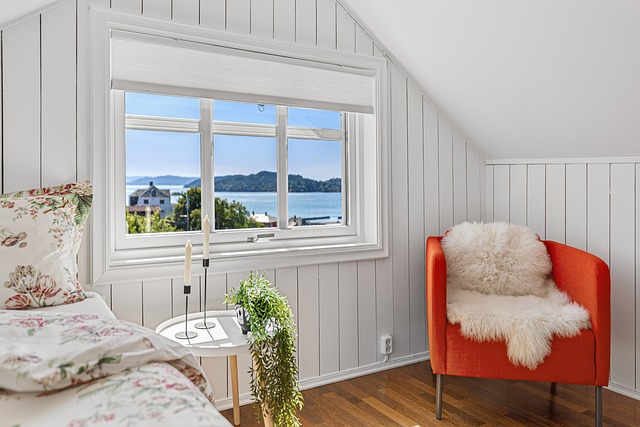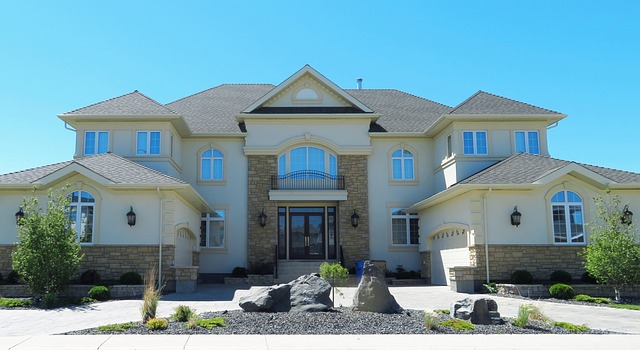2023 has seen a resurgence of interest in Executive Condominiums (ECs) in Singapore, reflecting broader trends in the property market. ECs serve as mid-market housing options for upgraders and first-time buyers, with prices influenced by factors such as location, land lease tenure, development quality, government policies including HDB supply management and eligibility criteria like MOP and PPHG, and macroeconomic factors like loan-to-value limits, Total Debt Servicing Ratio frameworks, immigration policies, and market cycles. The unique characteristic of ECs is their transition from public to private housing after a set period, which affects their pricing and demand. Investors looking at all ECs in Singapore must consider these dynamics, alongside economic indicators like inflation and interest rates, to navigate the cyclical nature of the market and make informed decisions that align with long-term investment strategies. Timing is critical in this niche segment, as is staying informed on current trends, market data, and government policy changes to capitalize on the potential growth trajectory for EC investments. Prospective buyers should monitor new EC launches, developer releases of land, and broader economic conditions to align their purchase with the market's rhythm and their personal financial objectives.
Exploring the nuances of Executive Condo pricing in Singapore’s dynamic real estate landscape, this article dissects the market dynamics shaping these properties. From historical price trends of ECs to the influence of location, tenure, and development quality on their valuation, gain insights into how government policies affect affordability and resale values. A strategic approach to purchasing an EC is outlined, aiding investors in timing their investments within this vibrant market. Key terms like “All ECs in Singapore” anchor the discussion, providing clarity for potential buyers.
- Understanding the Market Dynamics: A Comprehensive Guide to Executive Condominium (EC) Prices in Singapore
- Historical Price Trends of ECs: Analyzing Growth and Fluctuations Over the Years
- Factors Influencing EC Pricing in Singapore: Location, Tenure, and Development Quality
- The Impact of Government Policies on Executive Condo Affordability and Resale Values
- Strategies for Buying an EC: Timing Your Investment in the Singapore Property Market
Understanding the Market Dynamics: A Comprehensive Guide to Executive Condominium (EC) Prices in Singapore

In the vibrant real estate landscape of Singapore, Executive Condominiums (ECs) present a unique segment for homeowners and investors alike. Prospective buyers interested in all ECs in Singapore will find that these properties offer a middle ground between public and private housing. The pricing of ECs is influenced by various market dynamics, including location, supply, demand, and the maturity of the development. A keen understanding of these factors is crucial for discerning investors looking to navigate this niche market.
The price trends of ECs are subject to government regulations that dictate their eligibility criteria, which include a minimum occupancy period before they can be sold on the open market as private condominiums. This policy has significant implications for pricing, as demand shifts with the changing eligibility over the years. Additionally, the economic climate, interest rates, and new project launches contribute to the ebb and flow of EC prices. Potential buyers should consider how these factors align with their investment timeline and goals. Keeping abreast of the latest market data and trends for all ECs in Singapore is essential for making informed decisions in this dynamic market. Analysing historical price patterns, current market sentiments, and upcoming developments will provide a comprehensive overview necessary to assess the value and potential growth of an EC investment.
Historical Price Trends of ECs: Analyzing Growth and Fluctuations Over the Years

2023 has seen a renewed interest in Executive Condos (ECs) within Singapore, reflecting a broader trend of property market recovery. Historical price trends of ECs reveal a dynamic landscape, with growth and fluctuations influenced by various economic and policy factors. Over the years, EC prices have exhibited both resilience and sensitivity to changes in the real estate market. Factors such as inflation rates, interest rates, and the supply of new units have played significant roles in shaping these trends.
The all-ECs-in-Singapore market has historically shown cyclical patterns of growth and stabilization, often mirroring the broader housing market’s performance. For instance, during periods of economic expansion, EC prices generally witnessed upward trends due to increased demand from upgraders and first-time homeowners. Conversely, during economic downturns or when cooling measures were introduced, prices experienced a downturn or stagnation. Notably, the introduction of new housing policies has had a direct impact on EC pricing, with some measures leading to a softening of prices in the short term before recovery and growth ensued. Understanding these historical price trends is crucial for investors and homebuyers alike, as it provides insight into the potential future performance of the EC market. Analyzing past performance, coupled with an awareness of current economic indicators and governmental policies, can aid in making informed decisions regarding investment in all ECs in Singapore.
Factors Influencing EC Pricing in Singapore: Location, Tenure, and Development Quality

In Singapore’s real estate market, Executive Condos (ECs) represent a unique segment catering to the aspirations of both upgraders and first-time homeowners. The pricing of these units is influenced by several key factors that resonate with potential buyers. Chief among these is location. Proximity to amenities such as shopping centers, educational institutions, and public transportation hubs can significantly impact the desirability and consequently the price of an EC. Residents prioritize convenience and accessibility, driving up values in well-connected areas. Additionally, the remaining lease on the land, known as the ‘tenure’ of the property, plays a crucial role in EC pricing. A longer lease offers more years of potential appreciation and occupancy, which is often reflected in higher prices. The quality of the development itself also commands its price. Factors like architectural design, internal amenities, and the reputation of the developer can elevate an EC’s value. All ECs in Singapore must meet certain criteria to be categorized as such, but the standards of individual projects can vary, influencing their market positioning and price points. Prospective buyers interested in the best EC deals should consider these factors carefully, as they all contribute to the overall pricing structure of these properties.
Proximity to established neighborhoods and transport nodes, the length of the land lease, and the development’s quality and features are integral to an EC’s market value. The interplay between these elements results in a diverse range of pricing across different ECs. For instance, ECs situated in mature estates with robust infrastructure and those developed by reputable builders often command higher prices due to their perceived value and potential for capital appreciation. Conversely, newer developments in less established areas might offer more competitive pricing. These variations underscore the importance of a nuanced approach when assessing EC prices. Buyers looking at all ECs in Singapore must weigh these factors to make informed decisions that align with their financial planning and long-term objectives.
The Impact of Government Policies on Executive Condo Affordability and Resale Values

In Singapore, the landscape of Executive Condominiums (ECs) is significantly shaped by government policies that influence both affordability and resale values. The Housing & Development Board (HDB) plays a pivotal role in managing the supply of ECs, which are designed to cater to the mid-market segment, offering an alternative housing option for couples looking to upgrade from their HDB flats. Policies such as the Minimum Occupation Period (MOP) and the Public-Private Housing Grant (PPHG) have been tailored to ensure that ECs remain accessible to eligible first-time homeowners while maintaining a sustainable property market. The MOP, for instance, stipulates how long residents must live in the EC before they can sell it on the open market, thus impacting resale values. Additionally, the eligibility criteria for purchasing an EC are periodically adjusted by the government to align with broader economic and demographic considerations, ensuring that these condominiums continue to serve their intended purpose without causing price distortions.
The resale prices of ECs are also subject to the broader macroeconomic policies set forth by Singapore’s government, which include measures like loan-to-value (LTV) limits and Total Debt Servicing Ratio (TDSR) frameworks. These policies aim to ensure that individuals purchasing ECs do not overextend themselves financially, thus maintaining the affordability of these homes for a wider segment of the population. Moreover, the government’s stance on immigration and foreign worker policies can indirectly affect demand and, consequently, prices in the EC market. A balanced approach that considers both supply and demand, alongside economic stability, ensures that all ECs in Singapore—from those in Sengkang to those in Tampines Avenue 8—remain within reach for prospective buyers while maintaining their value over time.
Strategies for Buying an EC: Timing Your Investment in the Singapore Property Market

When considering the purchase of an Executive Condominium (EC) in Singapore, timing your investment is a critical factor that can significantly impact both short-term gains and long-term stability. Prospective buyers should first familiarize themselves with the unique nature of ECs; they are hybrid properties that offer the benefits of a condo while allowing owners to upgrade to a private property after a certain period, typically 5 to 10 years, without penalty. To maximize your investment in all ECs in Singapore, it’s pivotal to monitor the property market’s cycles, particularly the supply and demand dynamics for new EC launches.
A well-timed purchase often coincides with the launch of new EC projects. These launches can offer competitive pricing due to developers seeking to capture early market interest. Keep an eye on the government’s release of land for EC development, as this will signal upcoming opportunities. Additionally, consider the broader economic indicators and housing market trends. Factors such as interest rates, the overall economic climate, and demographic shifts can influence whether it’s a buyer’s or seller’s market. By staying informed on these fronts, you can strategically navigate the purchasing process of an EC, ensuring that your investment aligns with both market conditions and your personal financial goals. Whether you’re looking at existing ECs or those yet to be launched, such as the upcoming projects in regions like Tampines, the timing of your purchase should be guided by a blend of market insights and personal readiness.
navigating the Singapore property market, particularly in understanding the dynamics surrounding Executive Condos (ECs), is key for investors and homebuyers alike. This article has delved into the multifaceted nature of EC pricing, from historical trends to the myriad factors that influence valuations. It’s evident that location, tenure, and development quality play pivotal roles in shaping the market. Moreover, government policies have a significant impact on affordability and resale values of these properties. For prospective buyers, grasping the nuances of EC pricing is crucial for making informed decisions. By employing strategic timing and thorough research, one can capitalize on the opportunities that the All Ec In Singapore market presents. Whether you’re considering purchasing a new EC or interested in resale options, this guide equips you with the necessary insights to navigate the landscape effectively.
